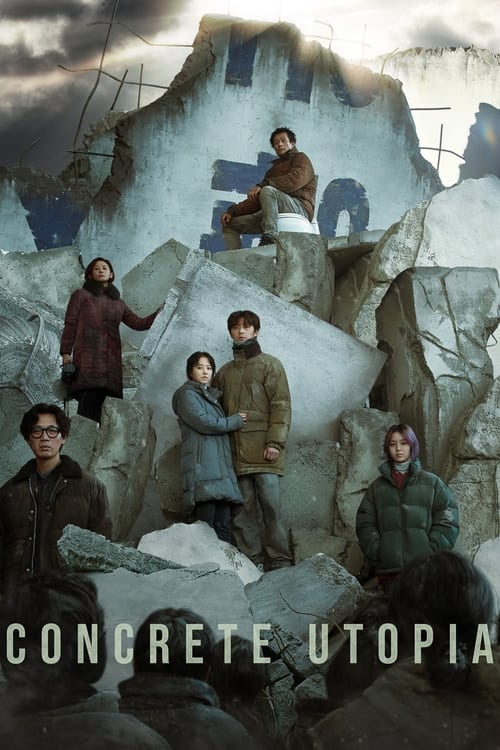
Concrete Utopia
Released: 2023-08-09
The world has been reduced to rubble by a massive earthquake. While no one knows for sure how far the ruins stretch, or what the cause of the earthquake may be, in the heart of Seoul there is only one apartment building left standing. It is called Hwang Gung Apartments. As time passes, outsiders start coming in to Hwang Gung Apartments trying to escape the extreme cold. Before long, the apartment residents are unable to cope with the increasing numbers. Feeling a threat to their very survival, the residents enact a special measure.
Thriller
Science Fiction
Drama
7.0 / 222
Duration: 130 min.
Budget: $0
Revenue: $28.9M
Trailer
Gallery
Reviews
Brent Marchant
Rating:5/10
When everything falls apart, it’s hard to know what will happen, especially in relations between survivors. Will mankind pull together to promote the uncertain continuation of the species, or is it a case of every man for himself? In this South Korean disaster film about what happens when a massive (and unexplained, not to mention highly improbable) earthquake destroys all of Seoul (and beyond apparently), except for one high-rise apartment building whose residents must decide whether to save only themselves or attempt to help displaced outsiders, despite a crucial lack of resources. What follows is essentially an apocalyptic retelling of The Lord of the Flies, with occasional back story flashes in the vein of television’s Lost. However, the film’s modestly engaging psychological thriller aspects aside, much of the narrative consists of a string of predictable (and not especially original) episodic incidents, most of which consist of various factions battling one another to become the prevailing alpha dogs. It’s not something we haven’t already seen many times before. What’s more, there’s precious little in the script to make viewers want to care about these people, primarily because of its tepid character development and an overreliance on recurring conflict (yawn). Add to that obvious and heavy-handed stabs at metaphorical geopolitical symbolism, erratic shifts in overall tone (particularly in the film’s first half), and a handful of feeble attempts at comic relief, and you’ve got a picture in need of serious retooling. It’s indeed puzzling to see the many accolades that have been so generously lavished on writer-director Tae-hwa Eom’s third feature outing in light of the project’s pervasive failings. But, beyond its imposing special effects and an impressive production design, there’s not much here to write home about. Wait for this one to come to home media if you’re really interested in sitting through this overlong slog.
Hover to reveal